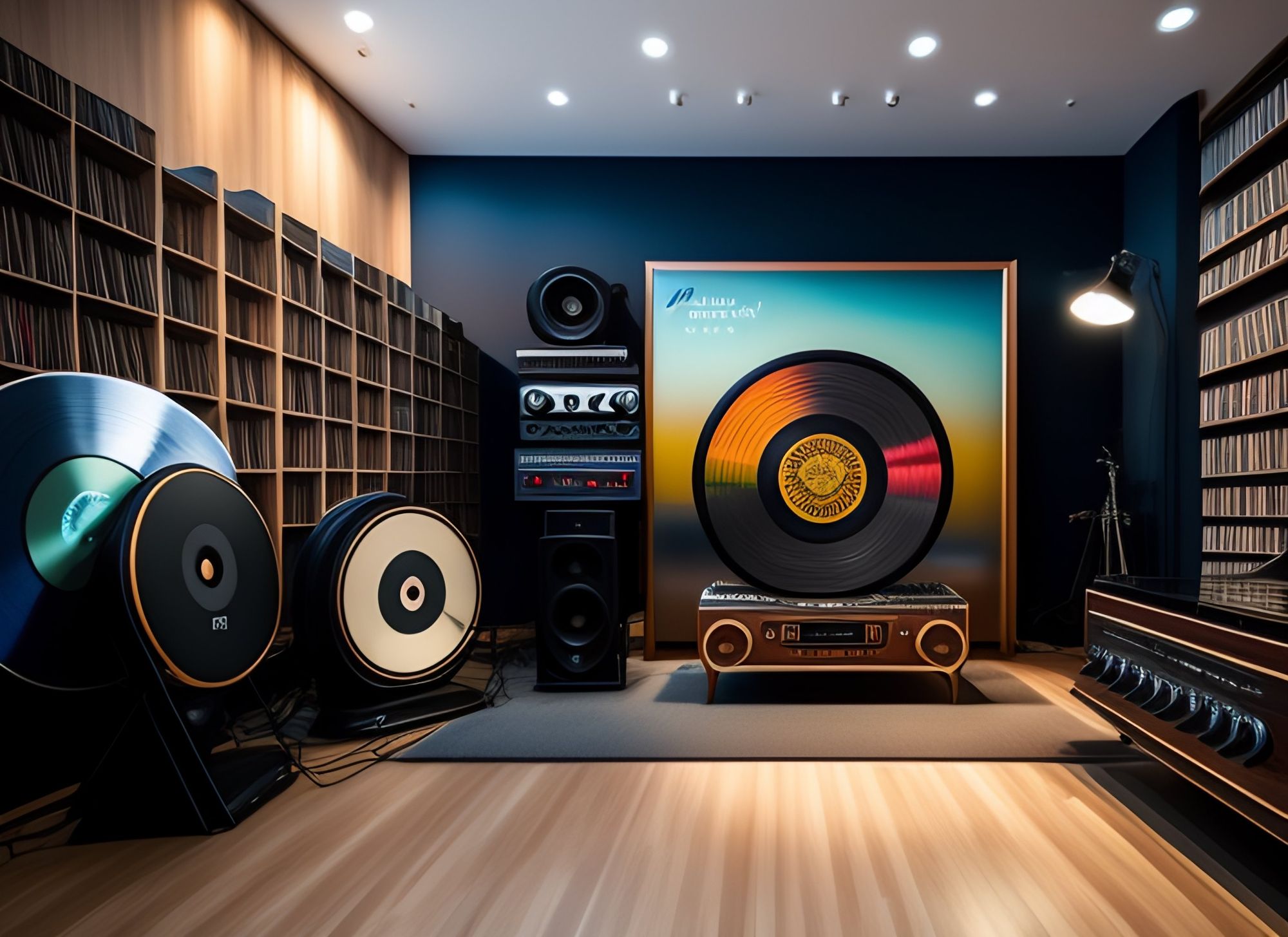Introducing our new AI-powered NFT creator
Creating NFTs has never been easier and fun!

NFTs and the Traits Economy in the Music Industry: A Comprehensive Comparison

Fernando Segre
March 28, 2023
The music industry is at the forefront of a digital transformation, with Web3 technologies, blockchain, and non-fungible tokens (NFTs) redefining the landscape. In this rapidly changing environment, record labels, artists, and fans are discovering new ways to create, distribute, and consume music. In this article, we explore how dynamic NFTs, with upgradable traits, can create seamless experiences and unlock unprecedented value for both the music industry and its consumers.
Revenue Distribution and Control
Traditional Record Deals: In a traditional record deal, artists often sign with record labels, which then control the distribution, marketing, and promotion of their music. In return, the label takes a significant portion of the artist's revenue. This can range from 50% to even 85% of total earnings, leaving artists with a smaller share of their income. Furthermore, the label's share often includes an advance against future earnings, meaning artists may not see significant income until they've recouped their advance. This can be particularly burdensome for emerging artists.
Web3: Web3 technology enables artists to mint and sell their music as NFTs, giving them greater control over distribution and revenue generation. Artists can sell their work directly to fans, set their own prices, and earn a larger share of the profits. Additionally, smart contracts can facilitate royalty payments, ensuring artists receive a percentage of future sales. This model cuts out intermediaries and allows artists to receive revenue more quickly, with no obligation to recoup advances.

Creative Ownership
Traditional Record Deals: Under a traditional record deal, the record label often retains ownership of the master recordings. This can limit artists' control over their own work and potential revenue streams from licensing and royalties. Additionally, labels may exert creative control over an artist's music, potentially stalling their artistic freedom.
Web3: In the Web3 model, artists retain full ownership of their music, including the master recordings. This allows them greater creative freedom and control over their work and future revenue opportunities. With no record label exerting control, artists can explore their own musical vision and potentially reach a broader audience.
Fan Engagement and Community Building
Traditional Record Deals: Labels traditionally manage fan engagement and promotion for their artists. This can create a disconnect between artists and their fans, as interactions are often filtered through the label's marketing team. As a result, fans may have limited opportunities to engage directly with their favorite artists.

Web3: Web3 technologies enable direct artist-fan connections, fostering a sense of community and more authentic engagement. NFTs can also provide fans with exclusive content, experiences, or digital collectibles, further enhancing the fan-artist relationship. This approach can lead to deeper connections with fans and potentially more loyal and dedicated supporters.
Barriers to Entry
Traditional Record Deals: Breaking into the music industry through a traditional record deal can be challenging for independent artists, as labels often prioritize established talent and commercial viability. This creates a competitive environment where many talented musicians struggle to be discovered.
Web3: Web3 platforms lower barriers to entry, allowing independent artists to share their work and connect with fans directly. This democratizes the music industry, providing opportunities for artists to build their careers without the need for a traditional record deal. As a result, a more diverse range of artists can find success and share their talents with the world.
Dynamic NFTs and upgradable traits further lower the barriers to entry for independent artists. By utilizing these technologies, artists can create unique and engaging NFT collections that stand out in a crowded marketplace. This can help attract fans and collectors, increasing the chances of success for emerging artists. The NFT Art Generator simplifies the process of creating and managing dynamic NFT projects, enabling artists to focus on their craft and build their careers without the need for a traditional record deal.
Long-Term Sustainability
Traditional Record Deals: With the advent of streaming services, traditional record deals have come under increased scrutiny for their ability to provide long-term financial stability for artists. The pay-per-stream model can result in low payouts for all but the most popular artists, making it difficult for many musicians to maintain a sustainable career.
NFTs and Web3 technology offer new revenue streams and opportunities for artists to monetize their work. By retaining ownership and control over their music, artists can create sustainable careers through direct sales, royalties, and other income streams. For example, artists can earn revenue from the resale of their NFTs, as smart contracts automatically allocate a percentage of secondary sales to the original creator. This provides a continuous income source for artists, even after the initial sale.
Dynamic NFTs and upgradable traits can contribute to the long-term sustainability of an artist's career. By creating a new economy with exchangeable and upgradable traits, artists can generate ongoing revenue streams from secondary sales, royalties, and the trading of traits and wearables. This can help artists build long-term financial stability and grow their wealth independently.
Moreover, artists can create their own NFT marketplaces, allowing users to equip and trade their NFTs. This new economy fosters a dynamic NFT experience, further extending the lifespan of an artist's collection and creating opportunities for additional revenue generation.
Food for thought
As the music industry continues to evolve, artists must weigh the benefits and drawbacks of each model to determine the best path for their careers. Ultimately, the choice between Web3 and traditional record deals will depend on each artist's unique goals, preferences, and values.
Web3 technology and traditional record deals offer contrasting approaches to the music industry, each with its own advantages and challenges. Web3 empowers artists with greater control, ownership, and direct fan engagement, while traditional record deals provide the support and resources of established labels.
Embracing dynamic NFTs with upgradable traits can revolutionize the music industry by offering unprecedented value and seamless experiences for both users and companies. Users, in turn, can enjoy a customizable and immersive experience that deepens their connection with their favorite artists and fellow fans. To learn more about harnessing the power of dynamic NFTs in the music industry, explore OneMint.io and unlock the full potential of the Traits Economy.
Do you have an idea you wish to discuss? Don't be a stranger and send us an email, we'll be happy to exchange thoughts!
Browse other posts